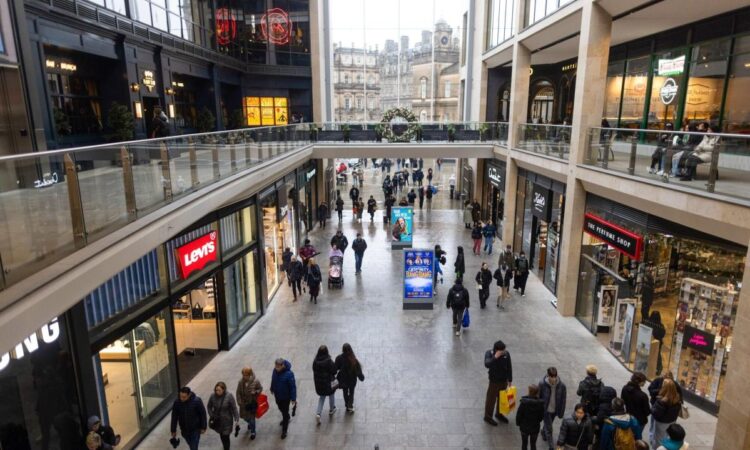
(Bloomberg) — UK retail sales stalled unexpectedly in March after price-conscious shoppers scaled back spending on food and at department stories.
Most Read from Bloomberg
The volume of goods sold in stores and online was unchanged in March after a revised 0.1% gain the month before, the Office for National Statistics said on Friday. Economists had expected an 0.3% increase.
The figures add to evidence of a lackluster recovery from last year’s recession. Consumers are still suffering from a cost-of-living crisis that forced them to pay more for the same amount of goods. While wages are rising rapidly and the Bank of England is expected to reduce interest rates, those forces have yet to fully feed through to people’s finances.
“Hardware stores, furniture shops, petrol stations and clothing stores all reported a rise in sales,” said Heather Bovill, senior statistician at the ONS. “However, these gains were offset by falling food sales and in department stores where retailers say higher prices hit trading.”
The pound was little changed after the data, holding on an earlier drop of 0.3% to $1.2405. Traders added to bets on interest rate cuts later this year and have fully priced in the first quarter-point reduction from the BOE in September.
Retail sales grew 1.9% in the first quarter, meaning the sector contributed 0.09 percentage point GDP during the period, the ONS said. The economy as a whole is expected to have expanded 0.2%, according to the median of forecasts in a Bloomberg survey.
Fuel sales provided a lift for the weak figures. Excluding auto fuel, overall sales fell 0.3% in March, erasing a gain of the same size the month before.
“Today’s retail sales data was somewhat of a damp squib, cracking retailers hopes of an Easter bounce-back in footfall,” said Phil Monkhouse, UK country manager at the financial services firm Ebury. “With retailers now getting to grips with two months of stagnation in a row, it seems the glimmer of hope after January’s unexpectedly impressive rebound is now starting to dim.”
The figures were impacted by heavy rainfall in the first half of March, which carried on from the wettest February on record. Retailers say they’re seeing more normal spending patterns than during the years interrupted by Covid-19.
“Large ticket items like furniture continued to sell badly as consumer spend remains restrained by the high cost of living,” said Kris Hamer, director of insight at the British Retail Consortium. “Footwear sales were impacted by the poor weather.”
Prime Minister Rishi Sunak is relying on a “feel good factor” from higher living standards, with his Conservative Party trailing in opinion polls ahead of a general election expected later this year.
Retailers including the UK’s largest grocer Tesco Plc have resorted to price cuts to attract shoppers — reducing inflation in UK stores to its lowest level in more than two years.
“Consumer confidence remains fragile, and households continue to keep a close eye on where their tight budgets are being spent,” Linda Ellett, head of consumer markets, leisure & retail at KPMG UK, said in a statement released by the British Retail Consortium last week.
–With assistance from Harumi Ichikura and Aline Oyamada.
(Updates with detail from the report and comment.)
Most Read from Bloomberg Businessweek
©2024 Bloomberg L.P.






